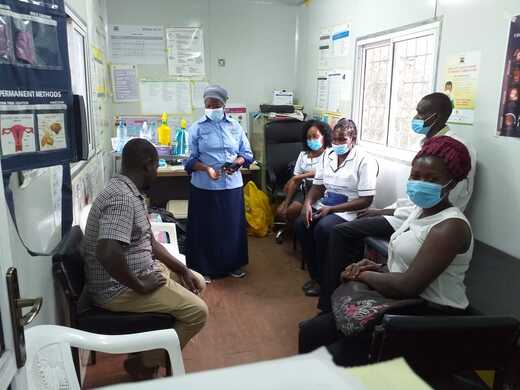Cancer Situation in Kenya |
Cancer is the third leading cause of death in Kenya, after infectious and cardiovascular diseases. According to the National Cancer Institute of Kenya, and WHO more than 42,000 new cases and 27,000 deaths were reported in 2020. Cervical, breast, prostate, and esophagus cancers are the most prevalent.
The main reason for the high death rate is that most cancer cases get detected too late when little can be done. Basic information, screening, and treatment services for different cancers are scarcely available, especially for those in rural communities or who cannot afford basic screening services. |
|
In 2021 we trained over 340 CHVs attached to the above hospitals, on cancer information, education, behavior changes (IEB) addressing issues on HPV, alcohol abuse, nutrition, physical exercise, among other public health matters. These CHVs are creating awareness and educating their people on cancer. They are spreading hope where their is fear and ignorance. Every year, this team educates over 5,000 community members, in their homes, at markets, and churches.
|
|
Early detection of cancer and prompt treatment have significant effect on cancer outcomes. We have trained tens of frontline health care workers at the three hospitals and mentored them on screening ('see and treat' methods for cervical cancer, clinical breast exam, visual inspection of cervix, digital rectal exams, and PSA test for prostate) counselling and effective, timely referral procedures for those who need advanced care. They in turn screen over 1800 community members annually, and treated hundreds for reproductive health issues including, treating pre-cancerous cervical lesions and urine retention. We periodically organize health and medical camps in remote or hard to reach areas. These outreaches offer education and screening in one place, en masse.
|


Programs |
DALA |
|
